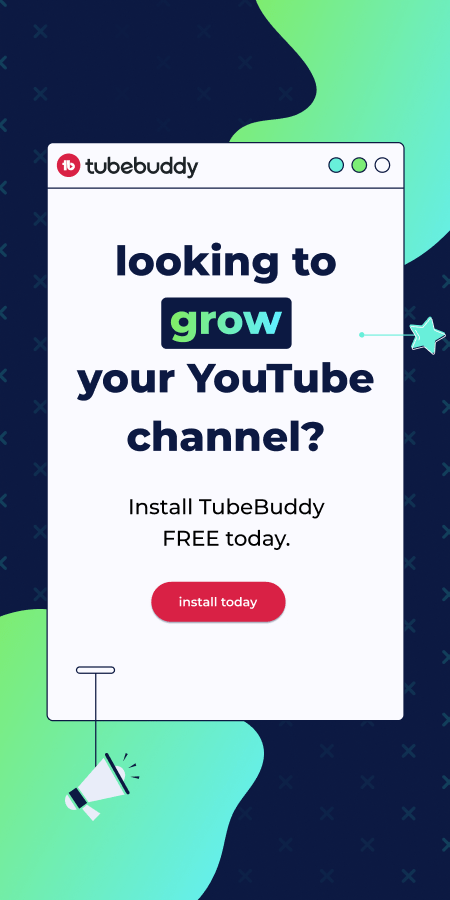Introduction:
In the vast expanse of YouTube, where content reigns supreme, creators vie for attention, and the battle for views is fierce, one element stands out as a game-changer – the strategic use of YouTube tags. In this deep dive into the world of generating effective YouTube tags, we'll unravel the mysteries, explore the nuances, and equip you with the knowledge to elevate your content above the competition.
Understanding the Essence: Decoding YouTube Tags
Defining YouTube Tags:
YouTube tags, often underestimated, are the invisible thread that connects your video to its potential audience. These are keywords or phrases strategically placed to communicate with YouTube's algorithm, directing it to categorize, recommend, and display your content accurately.
Role in the Algorithm:
YouTube's algorithm is a sophisticated beast, and tags serve as its language. Tags provide crucial metadata, guiding the algorithm to understand the context, relevance, and intended audience for your video. In essence, they are the keys to unlocking visibility and engagement.
Why YouTube Tags Matter
Enhancing Searchability :
At the core of YouTube tags' importance lies their ability to enhance searchability. Imagine your video as a needle in the YouTube haystack; well-optimized tags act as a magnet, ensuring your content surfaces when users search for related topics.
Guiding Algorithmic Recommendations :
YouTube's recommendation engine is a powerful ally when tags are strategically employed. Tags align your content with the preferences of potential viewers, making your video a prime candidate for recommendation, and broadening your audience reach.
Contextual Categorization :
Tags aid in categorizing your content accurately. This not only ensures that your video reaches the right audience but also facilitates a seamless user experience, as viewers are presented with content aligned with their interests.
Crafting Effective YouTube Tags: Strategies Unveiled
Relevance is the Key :
Selecting tags that mirror your video's content is non-negotiable. Irrelevant tags may attract the wrong audience, leading to dissatisfaction and a potential drop in engagement.
Balancing Act: Broad vs. Specific Tags :
Achieving the right balance between broad and specific tags is an art. Broad tags cast a wide net, while specific tags narrow down the focus. This combination ensures both visibility and targeted reach.
Keyword Research: A Prerequisite:
Before finalizing tags, embark on a journey of keyword research. Leverage tools like Google's Keyword Planner or third-party options to identify popular and relevant keywords in your niche.
Embracing Long-Tail Keywords :
The magic lies in the details. Long-tail keywords, though specific, can be powerful tools to capture niche audiences. Think of them as the secret sauce that adds flavor to your tagging strategy.
Adapting with Analytics :
The digital landscape is ever-changing, and so should your tagging strategy. Regularly analyze the performance of your videos using YouTube Analytics. Learn from what works and adapt your tag strategy for future content.
Navigating the Tagging Landscape: Best Practices
Strategic Tag Placement :
Don't just throw tags randomly; consider strategic placement within your video description. This influences how the algorithm interprets your video's content.
Long-Term Tagging Vision:
Consistency is key. Incorporate branded tags to build a recognizable identity. However, stay agile and evolve your tagging strategy by embracing trending tags to stay relevant.
YouTube Tags in Action: Case Studies
Channel Success Stories :
Let's delve into real-world examples of channels that have mastered the art of tagging. Analyzing their strategies can provide valuable insights into effective tagging practices.
Strategies of Successful Channels:
From consistent use of branded tags to staying on top of trending keywords, dissect the strategies employed by successful channels to optimize their tagging game.
The Ever-Changing Algorithm: Adapting Tagging Strategies
Algorithm Evolution :
YouTube's algorithm is not static. Understand how it evolves and adapts, and align your tagging strategies to stay in sync with the platform's changing preferences.
Analytics as Your Ally: Navigating Tag Performance
Utilizing YouTube Analytics :
Don't just tag and forget. Regularly monitor the performance of your tags through YouTube Analytics. This invaluable tool can provide insights into which tags are driving traffic and engagement.
Data-Driven Adjustments :
Let the data guide you. Make informed decisions by adjusting your tagging strategy based on the performance data gathered from YouTube Analytics.
Challenges in the Tagging Terrain: Overcoming Hurdles
Adapting to Algorithmic Changes :
The only constant in the digital realm is change. Explore strategies to navigate and adapt to the ever-changing algorithms and their impact on tagging.
Solving Tagging Puzzles :
Sometimes, tagging can feel like a puzzle. Uncover strategies to overcome common tagging challenges and ensure your content remains discoverable.
Conclusion
In conclusion, YouTube tags are not just keywords; they are the strategic linchpin that can catapult your content to new heights. By understanding the nuances of effective tagging, adapting to algorithmic shifts, and staying vigilant with analytics, you can master the art of generating YouTube tags that truly work.
---
Frequently Asked Questions (FAQs):
1. How many tags should I use for optimal results?
- While there's no fixed number, aim for a mix of around 10-15 tags per video. Strike a balance between broad and specific tags for optimal reach.
2. Can I update tags for existing videos?
- Absolutely. Stay proactive by updating tags based on performance insights. However, avoid making drastic changes that might impact your video's performance.
3. Should I use the same tags for every video?
- While some consistency with branded tags is good, adapt your tags based on the specific content of each video. Tailor your approach to suit the nuances of each piece of content.
4. How often should I conduct keyword research for tagging?
- Regularly. Stay on top of trends and shifts in your niche by conducting keyword research periodically. This ensures your tags remain aligned with current search trends.
5. Are long-tail keywords essential for effective tagging?
- Yes, they can be highly effective. Long-tail keywords help you tap into niche audiences, providing more specific context to your content and attracting viewers with particular interests.
